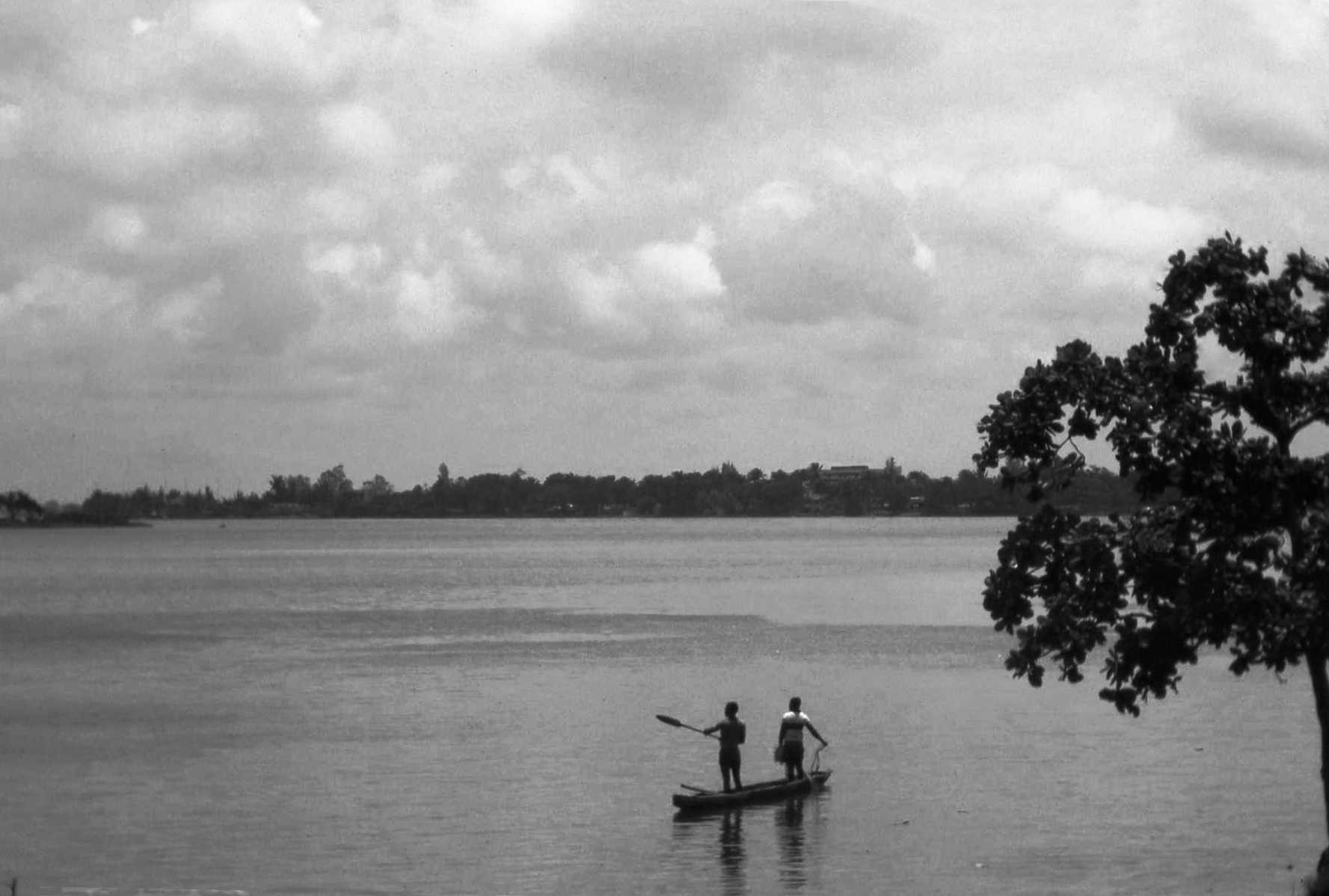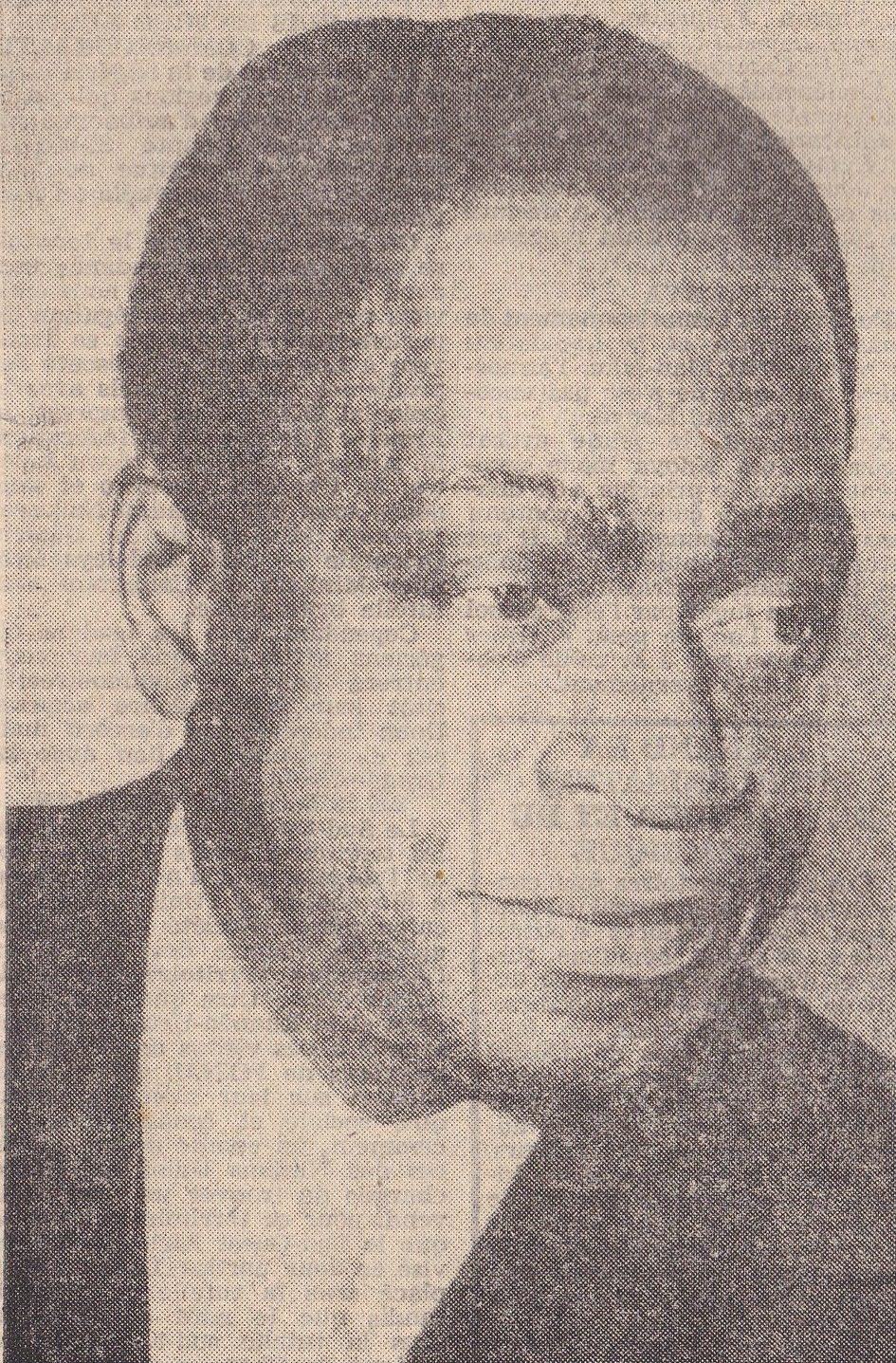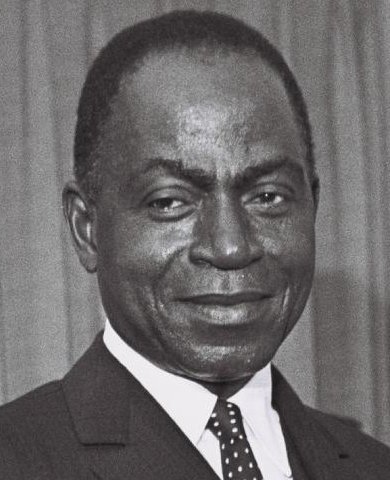|
Laurent Dona Fologo
Laurent Dona Fologo (12 December 1939 – 5 February 2021) was an Ivorian politician. Biography Fologo attended the École supérieure de journalisme de Lille, and subsequently became Editor-in-Chief of the newspaper ''Fraternité Matin ''Fraternité Matin'' or Frat' Mat' is an Ivory Coast, Ivorian newspaper headquartered in Abidjan. President of the Ivory Coast Félix Houphouët Boigny established the paper on 9 December 1964. "C’est le 09 décembre 1964, par la volonté du Pr ...''. He then served in various ministerial positions in the cabinet of Félix Houphouët-Boigny and became Secretary General of the Democratic Party of Ivory Coast (PCDI). During the First Ivorian Civil War, he helped to participate in the negotiations between Togo and the Economic Community of West African States. He also participated in the as a member of the PCDI. Additionally, he served as President of the until 19 May 2011. Laurent Dona Fologi died in Abidjan on 5 February 2021 at the age ... [...More Info...] [...Related Items...] OR: [Wikipedia] [Google] [Baidu] |
Sinématiali
Sinématiali is a town in northern Ivory Coast. It is a sub-prefecture of and the seat of Sinématiali Department in Poro Region Poro Region is one of the 31 regions of Ivory Coast. Since its establishment in 2011, it has been one of three regions in Savanes District. The seat of the region is Korhogo and the region's population in the 2021 census was 1,040,461. Poro is cu ..., Savanes District. Sinématiali is also a commune. In 2014, the population of the sub-prefecture of Sinématiali was 37,795. Villages The 91 villages of the sub-prefecture of Sinématiali and their population in 2014 are: Notes Sub-prefectures of Poro Region Communes of Poro Region {{SavanesCI-geo-stub ... [...More Info...] [...Related Items...] OR: [Wikipedia] [Google] [Baidu] |
French West Africa
French West Africa (french: Afrique-Occidentale française, ) was a federation of eight French colonial territories in West Africa: Mauritania, Senegal, French Sudan (now Mali), French Guinea (now Guinea), Ivory Coast, Upper Volta (now Burkina Faso), Dahomey (now Benin) and Niger. The federation existed from 1895 until 1958. Its capital was Saint-Louis, Senegal until 1902, and then Dakar until the federation's collapse in 1960. History Until after World War II, almost none of the Africans living in the colonies of France were citizens of France. Rather, they were "French subjects", lacking rights before the law, property ownership rights, rights to travel, dissent, or vote. The exception was the Four Communes of Senegal: those areas had been towns of the tiny Senegal Colony in 1848 when, at the abolition of slavery by the French Second Republic, all residents of France were granted equal political rights. Anyone able to prove they were born in these towns was legally Fre ... [...More Info...] [...Related Items...] OR: [Wikipedia] [Google] [Baidu] |
Abidjan
Abidjan ( , ; N'Ko script, N’ko: ߊߓߌߖߊ߲߬) is the economic capital of the Ivory Coast. As of the Demographics of Ivory Coast, 2021 census, Abidjan's population was 6.3 million, which is 21.5 percent of overall population of the country, making it the sixth most populous city proper in Africa, after Lagos, Cairo, Kinshasa, Dar es Salaam, and Johannesburg. A cultural crossroads of West Africa, Abidjan is characterised by a high level of industrialisation and urbanisation. It also is one of the most populous French-speaking cities in Africa. The city expanded quickly after the construction of a new wharf in 1931, followed by its designation as the capital city of the then-French colony in 1933. The completion of the Vridi Canal in 1951 enabled Abidjan to become an important sea port. Abidjan remained the capital of the Ivory Coast after its independence from France in 1960. In 1983, the city of Yamoussoukro was designated as the official political capital of Ivory Coast. Ho ... [...More Info...] [...Related Items...] OR: [Wikipedia] [Google] [Baidu] |
Ivory Coast
Ivory Coast, also known as Côte d'Ivoire, officially the Republic of Côte d'Ivoire, is a country on the southern coast of West Africa. Its capital is Yamoussoukro, in the centre of the country, while its largest city and economic centre is the port city of Abidjan. It borders Guinea to the northwest, Liberia to the west, Mali to the northwest, Burkina Faso to the northeast, Ghana to the east, and the Gulf of Guinea (Atlantic Ocean) to the south. Its official language is French, and indigenous languages are also widely used, including Bété, Baoulé, Dioula, Dan, Anyin, and Cebaara Senufo. In total, there are around 78 different languages spoken in Ivory Coast. The country has a religiously diverse population, including numerous followers of Christianity, Islam, and indigenous faiths. Before its colonization by Europeans, Ivory Coast was home to several states, including Gyaaman, the Kong Empire, and Baoulé. The area became a protectorate of France in 1843 ... [...More Info...] [...Related Items...] OR: [Wikipedia] [Google] [Baidu] |
Demographics Of Côte D'Ivoire
This article is about the demographic features of the population of Ivory Coast, including population density, ethnicity, education level, health of the populace, economic status, religious affiliations and other aspects of the population. Population According to the total population was in , compared to only 2 630 000 in 1950. The proportion of children below the age of 15 in 2010 was 40.9%, 55.3% was between 15 and 65 years of age, while 3.8% was 65 years or older . Population Estimates by Sex and Age Group (01.VII.2020): Population Growth: 1.88% (2016 est.) Vital statistics Registration of vital events in the Ivory Coast is not complete. The website Our World in Data prepared the following estimates based on statistics from the Population Department of the United Nations. Fertility and Births Total Fertility Rate (TFR) (Wanted Fertility Rate) and Crude Birth Rate (CBR): Fertility data as of 2011-2012 (DHS Program): Ethnic groups Ivory Coast has mo ... [...More Info...] [...Related Items...] OR: [Wikipedia] [Google] [Baidu] |
Democratic Party Of Ivory Coast – African Democratic Rally
The Democratic Party of Ivory Coast – African Democratic Rally (french: Parti Démocratique de la Côte d'Ivoire — Rassemblement Démocratique Africain; abbreviated PDCI-RDA) is a centre-right political party in Ivory Coast. History Founded during the colonial era in 1946, as an outgrowth of the African Agricultural Union, it became the only legal party in the country upon independence in 1960. For the next 30 years, the PDCI and the government were effectively one. Every five years, its founder and leader, Félix Houphouët-Boigny, was automatically elected to a five-year term as president of the republic and confirmed in office via a referendum. At the same time, a single list of PDCI candidates was returned to the National Assembly. All adult Ivorians were required to be members of the party, which was considered the primary intermediary between the government and the people. Even after opposition parties were legalised in 1990, the PDCI continued to dominate Ivori ... [...More Info...] [...Related Items...] OR: [Wikipedia] [Google] [Baidu] |
École Supérieure De Journalisme De Lille
The École supérieure de journalisme (ESJ Lille) (in English: ''Superior School of Journalism of Lille'') is an institution of higher education, a French ''Grande École'' in Lille dedicated to journalism and related studies. It has been elected best French journalism school in 2013 by Le Figaro. History Founded by the lawyer Paul Verschave (1878-1947), the ESJ Lille opens its doors on the first Tuesday of November, within the Catholic Faculties of Lille. In 1956, ESJ Lille was approved by the profession under the collective agreement of journalists, which limits to one year the professional training of its graduates. In 1960, ESJ Lille became a private higher education institution. Taking charge by his former pupils who create, according to the French law of 1901, the Association of the Higher School of Journalism of Lille. In 1969, the ESJ Lille was recognized by the State under the Decree of 24 April. In 1981, ESJ Lille moved into its current premises, 50 rue Gauthier-de-Chât ... [...More Info...] [...Related Items...] OR: [Wikipedia] [Google] [Baidu] |
Fraternité Matin
''Fraternité Matin'' or Frat' Mat' is an Ivory Coast, Ivorian newspaper headquartered in Abidjan. President of the Ivory Coast Félix Houphouët Boigny established the paper on 9 December 1964. "C’est le 09 décembre 1964, par la volonté du Président Félix Houphouët Boigny, que commença la belle aventure de Fraternité Matin, 1er quotidien ivoirien d’informations générales." References External links * Newspapers published in Ivory Coast 1964 establishments in Ivory Coast Publications established in 1964 {{Africa-newspaper-stub ... [...More Info...] [...Related Items...] OR: [Wikipedia] [Google] [Baidu] |
Félix Houphouët-Boigny
Félix Houphouët-Boigny (; 18 October 1905 – 7 December 1993), affectionately called Papa Houphouët or Le Vieux ("The Old One"), was the first president of Ivory Coast, serving from 1960 until his death in 1993. A tribal chief, he worked as a medical aide, union leader and planter before being elected to the French Parliament. He served in several ministerial positions within the French government before leading Côte d'Ivoire following independence in 1960. Throughout his life, he played a significant role in politics and the decolonization of Africa. Under Houphouët-Boigny's politically moderate leadership, Ivory Coast prospered economically. This success, uncommon in poverty-ridden West Africa, became known as the "Ivorian miracle"; it was due to a combination of sound planning, the maintenance of strong ties with the West (particularly France) and development of the country's significant coffee and cocoa industries. However, reliance on the agricultural sector ca ... [...More Info...] [...Related Items...] OR: [Wikipedia] [Google] [Baidu] |
First Ivorian Civil War
The First Ivorian Civil War was a civil conflict in the Ivory Coast (also known as Côte d'Ivoire) that began with a military rebellion on 19 September 2002 and ended with a peace agreement on 4 March 2007. The conflict pitted the government of Ivorian President Laurent Gbagbo against a domestic insurgency led by the New Forces of Ivory Coast (''Forces nouvelles de Côte d'Ivoire''). The war was preceded by a tumultuous decade in Ivory Coast, marked by an economic downturn and, following the death of long-time Ivorian President Félix Houphouët-Boigny in December 1993, a leadership succession crisis. The succession crisis manifested in a 1999 military coup d'état and a violent dispute over the result of the 2000 presidential election. Three successive Ivorian leaders – Henri Konan Bédié from 1993, Robert Guéï from 1999, and Gbagbo from 2000 – exploited the ideology of Ivoirité to repress and marginalise political opposition, notably by disqualifying Alassane Ouattar ... [...More Info...] [...Related Items...] OR: [Wikipedia] [Google] [Baidu] |
Togo
Togo (), officially the Togolese Republic (french: République togolaise), is a country in West Africa. It is bordered by Ghana to the west, Benin to the east and Burkina Faso to the north. It extends south to the Gulf of Guinea, where its capital, Lomé, is located. It covers about with a population of approximately 8 million, and has a width of less than between Ghana and its eastern neighbor Benin. From the 11th to the 16th century, tribes entered the region from various directions. From the 16th century to the 18th century, the coastal region was a trading center for Europeans to purchase slaves, earning Togo and the surrounding region the name "The Slave Coast". In 1884, Germany declared a region including a protectorate called Togoland. After World War I, rule over Togo was transferred to France. Togo gained its independence from France in 1960. In 1967, Gnassingbé Eyadéma led a successful military coup d'état, after which he became president of an anti-communist, ... [...More Info...] [...Related Items...] OR: [Wikipedia] [Google] [Baidu] |
Economic Community Of West African States
The Economic Community of West African States (ECOWAS; also known as in French and Portuguese) is a regional political union, political and economic union of fifteen countries located in West Africa. Collectively, these countries comprise an area of , and in 2015 had an estimated population of over 349 million. Considered one of the pillar trade bloc, regional blocs of the continent-wide African Economic Community (AEC), the stated goal of ECOWAS is to achieve "collective self-sustainability, self-sufficiency" for its member states by creating a single large trade bloc by building a full economic and trading union. The union was established on 28 May 1975, with the signing of the Treaty of Lagos, with its stated mission to promote economic integration across the region. A revised version of the treaty was agreed and signed on 24 July 1993 in Cotonou. The ECOWAS also serves as a peacekeeping force in the region, with member states occasionally sending joint military forces to ... [...More Info...] [...Related Items...] OR: [Wikipedia] [Google] [Baidu] |



